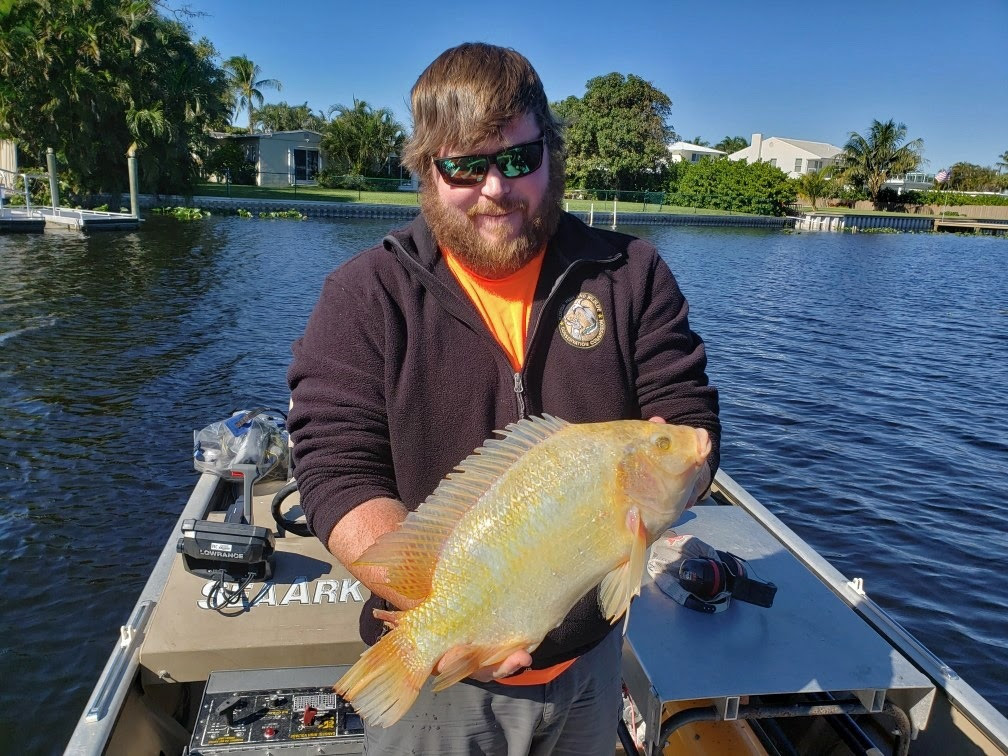Right Whale Calving Season ContinuesDecember was a busy month for Atlantic right whales, as their calving season continues. Over the last month two adults females, Catalog #1810 ‘Swerve’ and #1208, were sighted off Little Talbot Island, FL and Catalog #4040 ‘Chiminea’ and calf made their way slowly past Amelia Island, the Talbot Islands and into Ponte Verde Beach, making their way past the busy St. Mary's River and St. John's River entrances along the way. In total, 28 right whales, including four newborn calves, have been identified by researchers since calving season began around November 15th. Researchers with the Florida Fish and Wildlife Conservation Commission (FWC) are involved in numerous conservation efforts for this critically endangered whale. Aerial surveys, a main tool of researchers, are used to detect right whales, help prevent vessel collisions with whales, document calves, assess distribution and habitat use, and locate dead, injured and entangled whales. Hopefully more aerial surveys and updates in the weeks to come!
 Florida Black Bear Abundance SurveyFWRI’s Bear Research Coordinator Brian Scheick explains how bear hair snares are used to estimate Florida black bear abundance.
 Late Nesting Sea Turtle RecordA new record for late nesting sea turtle! On December 7th, UCF Marine Turtle Research Group confirmed a green turtle nest was found on central Brevard County. This is a new late-nest record for sea turtles in Florida. The previous record was set by a green turtle on November 24th, 2014 at Cape Canaveral Air Force Station. Photo credit: Mike McGarry, Brevard County Natural Resources
 Xanthic Blue Tilapia FoundWhile conducting community sampling in a canal off Lake Osborne in Boynton Beach, FWRI biologists came across this xanthic blue tilapia. Xanthochromism is an unusual yellow pigmentation in an animal. The cause is usually genetic, but may also be related to the animal's diet.
 Panther Injured in Vehicle Strike RecoversEarlier this month, FWC received a call that a Florida panther had been hit by a vehicle and was still alive. FWC panther biologists responded to the call and safely transported the panther to Glass Animal Hospital for a complete assessment. Although the male panther suffered a traumatic event, x-rays showed no broken bones. This panther has since recovered at Naples Zoo and has been successfully released back into the wild. Please go slow in areas where there are wildlife crossings and keep an eye out for panthers, and other wildlife. If you see an injured or dead panther, please call the FWC’s Wildlife Alert Hotline at 888-404- 3922.
New on MyFWC.com/ResearchWe hope you enjoy these articles that have been recently added/updated on our website: Index Nesting Beach Survey Totals (1989-2020)
Annual Rescue Summaries (Manatees)
Scientific Publications (Sea Turtles)
2019 Manatee Mortalities
2020 Manatee Mortalities
New Publications
Northeast Florida Blue Crab Fisheries Independent Monitoring
Florida Horseshoe Crab Watch-Linked With Limulus
Stone Crab Catch Data
Our MissionThrough effective research and technical knowledge, we provide
timely information and guidance to protect, conserve, and manage
Florida's fish and wildlife resources. | 

No comments:
Post a Comment